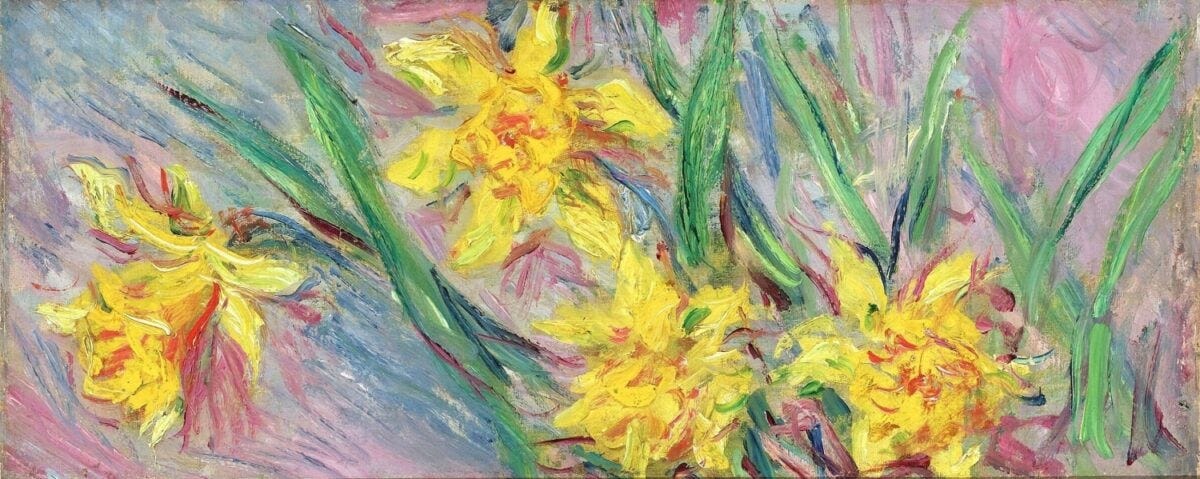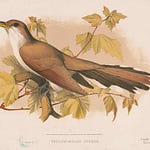Wendell Berry, poet and novelist and farmer, long ago wrote an essay on the difference between a nuclear power plant and a flower, quoting one of Shakespeare’s sonnets, which compares the constant ravages of time with beauty, “whose action is no stronger than a flower.” It reminds me of the powerful distinction Henry Adams made, between “the Virgin and the dynamo,” he having visited the Great Exposition in Paris in 1900, and seen all the phenomenal machines that would change the world. But it disturbed and saddened him too, because at the same time he could visit Chartres Cathedral, and Notre-Dame de Paris, immense jewelry-boxes for the beloved Lady Mary, and their windows with their lacework as of delicate and intricate flowers. The one was beholden to power; the other, to beauty, purity, innocence, and devotion to God. It’s hard for me to imagine a poem written in honor of a new gear-shift, as fascinating and important as such engines are. But flowers? Adams didn’t know then what we know now, that each flower, even each cell of a flower, is more complex by far than a vast factory of interlocking machines, with the addition that the flower is alive and the machines are not.
If we think of flowers, so many are the choices for our Poem of the Week! I think of the final two lines of Wordsworth’s brilliant and heartfelt Ode on Intimations of Immortality: “To me the meanest flower that blows can give / Thoughts that too often lie too deep for tears.” Or there is Tennyson’s epigram, Flower in the Crannied Wall, where the poet says that if he could know what that simple little flower is, know it all through, he “should know what God and man is.” The poetry of Gerard Manley Hopkins is full of flowers and other works of God, which he observed as closely as any botanist would, but also with a heart and a mind open to the divine, to be perceived in every delicate and living vein of leaf and flower and fruit.
And flowers are associated with love, that is, with a man’s love for a beautiful woman, as in Robert Burns' song, “My love is like a red, red rose.” Spenser has the lovely nymph who is going to be the mother of his heroines Amoret and Belphoebe bathing one day in the summer — she “bathed with roses red, and violets blue, / And all the sweetest flowers that in the forest grew.” But I’m going to go for Wordsworth again here, and a poem that I’d guess most of our readers are familiar with. It’s one of his early ballads, known by its first line, which wasn’t really intended as a title, “I wandered lonely as a cloud.”
If you know the poem, I’d like to ask you to pretend that you don’t know it, so you can try to hear it for the first time. Maybe I’ve got Milton on my mind, but I think of the many moments in Paradise Lost when someone suddenly comes within sight of objects of tremendous beauty and wonder. Often it’s Satan, taken aback by how magnificent the new created world is, a world he seeks to corrupt or destroy. But it’s also Adam, Eve, and the angels who accompany the Son of God as he creates the world. Think then of the suddenness of it, and of the strange power. The scene is near a bay — and the poet delays telling us that that is where he is, so that we see at once both the sea and the flowers, a sweep of wild daffodils, ten thousand of them. And he finds the sight to be profoundly moving.
Such moments are all too rare in the best of times, but in ours, almost unimaginable. That’s not because the daffodils are missing. We’re the ones who are missing. We must open our eyes. We must open our hearts. Here’s as good a place to start as any!
I wandered lonely as a cloud That floats on high o'er vales and hills, When all at once I saw a crowd, A host, of golden daffodils; Beside the lake, beneath the trees, Fluttering and dancing in the breeze. Continuous as the stars that shine And twinkle on the milky way, They stretched in never-ending line Along the margin of a bay: Ten thousand saw I at a glance, Tossing their heads in sprightly dance. The waves beside them danced; but they Out-did the sparkling waves in glee: A poet could not but be gay, In such a jocund company: I gazed—and gazed—but little thought What wealth the show to me had brought: For oft, when on my couch I lie In vacant or in pensive mood, They flash upon that inward eye Which is the bliss of solitude; And then my heart with pleasure fills, And dances with the daffodils.
Listen to this episode with a 7-day free trial
Subscribe to Word & Song by Anthony Esolen to listen to this post and get 7 days of free access to the full post archives.












